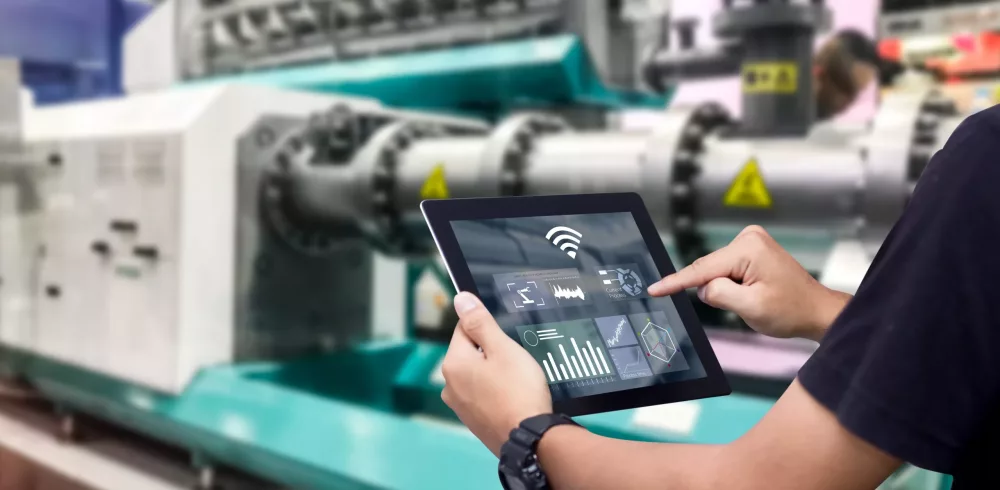Putting Sustainability Back on the Agenda : The COVID-19 pandemic has been a personal tragedy for thousands across the world and caused major disruptions, impacting millions of lives and businesses.
The pandemic has had a positive impact on the environment however, as a result of the reduction in energy consumption across sectors such as manufacturing. But it has invariably delayed many planned physical activities from taking place at site level that are geared towards improving energy efficiency and reducing emissions.
Numerous manufacturers were forced to reduce production in response to the March lockdown. Whilst on the face of it this largely resulted in a drop in absolute energy consumption, relative energy consumption – that is the quantity of energy used to produce each widget – will have increased significantly in many cases, negatively impacting operating costs.
Many energy reduction activities will inevitably recommence as pandemic restrictions are progressively lifted; however, it is paramount that manufacturers put energy efficiency back on their agenda to help reduce bottom line costs, protect against fluctuating energy costs, and lower emissions.
Sustainability and carbon reduction goals should also be prioritised with the UK government’s net zero target edging closer and increasing pressure from a growing influence of more environmentally aware consumers. Manufacturers will need to consider ways to innovate and potentially collaborate in order to eliminate CO2 emissions from their operations within the next 30 years.
COVID-19’s impact on the countdown to net zero
Across the world, emissions have reduced significantly during the pandemic due to the reduction or cessation of production at many factories, putting increasing pressure on the sector to find ways to maintain lowered emissions and lessen its overall impact on the environment. However, the implications will be felt beyond how manufacturers reduce emissions and consume energy; it will affect supply chains and have an impact on customers and employees.
The net zero challenge for manufacturers is enormous, with most aspects of the sector currently intrinsically linked to fossil fuels. The journey to true sustainability needs 100% commitment and will involve financial implications, as well as innovative thinking to discover new techniques, new products, and new markets. The whole sector will need to embrace this transition or face ultimate demise.
Nonetheless, the COVID-19 pandemic has offered an experimental data point that would be totally unobtainable under normal circumstances. This insight is likely to act as an accelerator for sustainability investments as companies reconsider the impact of their activities on the environment, along with those of their employees’ and their supply chains.
Achieving sustainability goals – 5 things to consider
To plan for net zero and reduce carbon emissions, manufacturers need a sustainability strategy in place that will not only provide a roadmap to a zero carbon future, but also reduce bottom line costs and exposure to energy cost increases or rises in carbon taxation.
Manufacturers should consider the following when addressing your sustainability needs:
- How to optimise and reduce manufacturing energy consumption as far as is reasonably practicable
- Examine the potential for on-site renewable self-generation to satisfy some of your power requirement
- Explore the potential for off-site renewable energy supply via power purchase agreement
- Consider procuring renewable energy via more conventional means
- Offset any residual emissions that cannot be eliminated through any of the above.
The rise of renewables
In the UK, we are already seeing wind and solar topping the electricity generation tables, albeit intermittently. Installing solar panels on factory premises with the aim of producing electricity locally is just one example of a simple, yet highly effective route to partial decarbonisation. The cost reductions in renewable technology experienced over the past decade look set to continue to drive investment in this area for the foreseeable future.
These cost reductions have also driven an exponential increase in the demand for renewable power purchase agreements (PPAs) within the corporate space, with companies joining forces with others to make commitments to sustainability through private deals, allowing them to collectively buy direct from renewable generators.
As manufacturing ramps up, the race is back on to decarbonise in view of the net zero target. Those that fail to invest in sustainability and carbon reduction will leave themselves at risk not only of paying higher costs in the long-term, but potentially being squeezed out of the market altogether as environmental pressure from peers and customers intensifies and governments enforce new legislation.
World Kinect Energy Services can help create bespoke sustainability strategies, provide carbon footprint reporting, and advise on carbon offsetting, Renewable Energy Certificates, and carbon compliance. For more information on how its sustainability team can help with your company’s sustainability ambitions, go to World Kinect Energy Services.
Manufacturing & Engineering Magazine | The Home of Manufacturing Industry News













